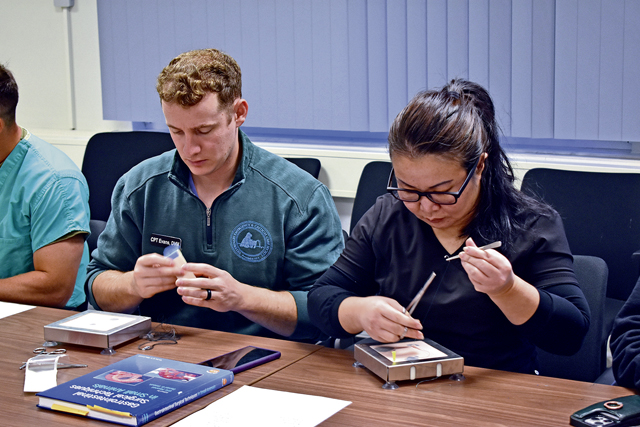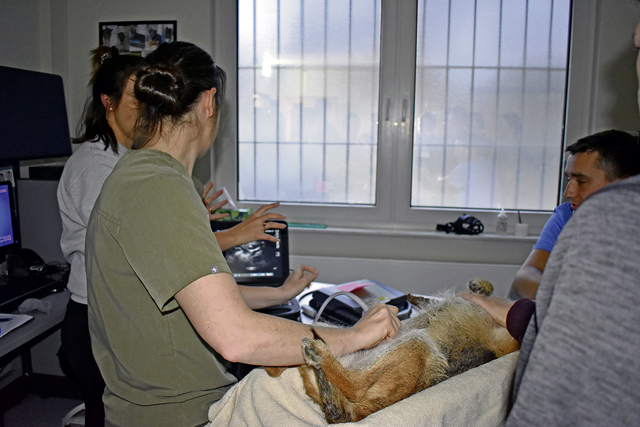
Public Health Command Europe hosted a five-day training event for U.S. Army and international veterinarians to build partnerships and exchange veterinary expertise from Nov. 19-22.
Around 30 veterinarians from the U.S. Army, Germany and Poland participated in the annual European Military Veterinary Short Course held by Public Health Command Europe’s Veterinary Services Division.
The five-day course provides 40 total hours of education, training and exposure related to Department of Defense veterinary clinical and development mission requirements.
“The goal of this training is providing the Continuing Education credits required of our veterinary licenses, improving the clinical skills of Veterinary Corps Officers especially given our small teams and remote locations within EUCOM and CENTCOM supporting Military Working Dogs and Privately Owned Animals, and facilitating hands on training for critical clinical tasks,”said Lt. Col. Diane Collette, Regional Veterinary Clinical Consultant at Public Health Command Europe.

The training brings veterinarians from across Europe together and highlights the importance of partnerships.
“It is great to meet our counterparts and to train alongside them,” said 2nd Lt. Weronika Zawadka from the Polish Military Preventive Medicine Center. “Knowing your counterparts and exchanging knowledge before the worst case takes place is beneficial and an ease of mind.”
In addition to lectures and question and answer sessions, one day was held at Veterinary Medical Center Europe the Army’s forward-deployed Role 3 medical and surgical center for Military Working Dogs.
The veterinarians rotated through different stations such as sutures, constant rate infusions, familiarization with equipment, dental work and ultrasound.
“This is my first time participating in the course and I truly enjoyed chatting with the veterinarians from the U.S. Army,” said Major Beate Schramm, Bundeswehr School of Dog Handling in Ulmen, Germany. “We all work in the same field but sometimes things are taught differently so having a chance to explore the techniques from different countries was great.”
According to Schramm, the hands-on dental portion was very beneficial too.
“We go through dentistry in veterinary school but in the Bundeswehr, I’m not doing them as frequent,” said Schramm. “Having a veterinary dentist here to explain things thoroughly or show us some tips was phenomenal.”


